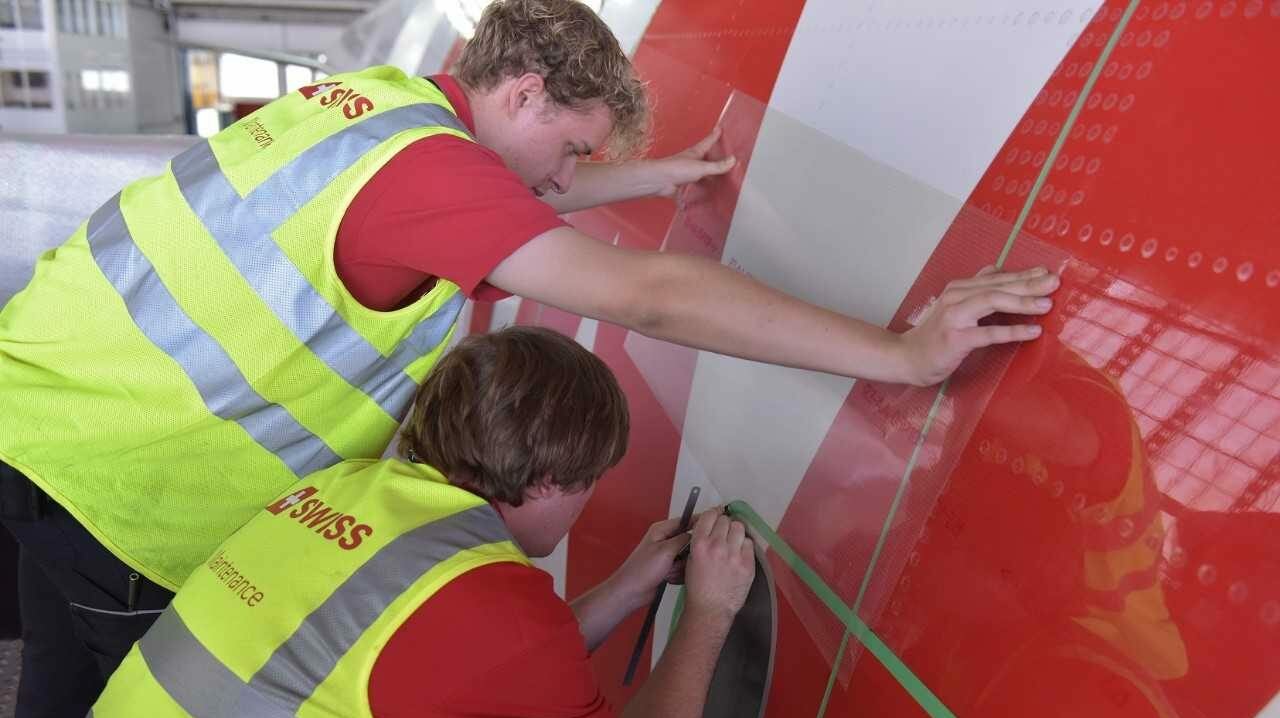For the Lufthansa Group, continuously increasing fuel efficiency in flight operations is an important lever for more sustainable flying. With the help of technological innovations, smart flight planning and monitoring, improvements in aerodynamics and measures to reduce aircraft weight the Lufthansa Group aims to use every drop of kerosene as efficiently as possible. Every tonne of kerosene saved in flight operations reduces the environmental impact by 3.15 tonnes of CO2.
In addition, projects are being implemented in many areas of the Lufthansa Group in order to manage the company better and make it more efficient with the help of digital data. Together with Google Cloud, for example, the Lufthansa Group is using artificial intelligence (AI) to develop holistic control options for flight operations. With the AI tool OPSD (Operations Decision Support Suite), the Lufthansa Group is making flying not only more comfortable and economical but also more sustainable, for example by selecting the most efficient aircraft for a route.
In addition to the most efficient use of aircraft, the Lufthansa Group's operational measures aimed at increasing economic and ecological efficiency also include optimizing capacity utilization, testing and introducing new flight procedures and navigation technologies, and determining optimal routes and speeds. The Lufthansa Group's Ops Sustainability Team is continuously driving forward the implementation of efficiency-enhancing measures in the airline group's flight operations. In 2024 more than 90 fuel-saving projects were under way across the Group. In addition to the reductions achieved in recent years, they made it possible to permanently avoid another 37.000 metric tonnes of CO2. The quantity of kerosene saved amounted to around 12.000 metric tonnes – this is equivalent to approximately 142 return flights between Munich and New York with an Airbus A350-900 aircraft.
Specific CO2 emissions per passenger-kilometre were 87.5 grammes in 2024, 1 percent lower than in the previous year (2023: 88.7 grammes).
AeroSHARK: technological innovation modeled on nature
The Lufthansa Group also continuously examines measures for the technical modification of the existing fleet and implements them in cooperation with partners from research and industry. The Lufthansa Group is the world's first airline group to equip aircraft in its fleet with the AeroSHARK surface technology developed by Lufthansa Technik and BASF. The transparent film imitates the aerodynamic properties of sharkskin with microscopically small riblets. This reduces the air drag of the aircraft and lowers fuel consumption and CO2 emissions - by around one percent in the current stage of development. Future enhancements could even save up to three percent. 22 Lufthansa Group aircraft are already equipped with AeroSHARK (status 07/2025): the entire Boeing 777-300ER fleet of SWISS (twelve aircraft), five Boeing 777Fs of Lufthansa Cargo, four Boeing 777-200ER of Austrian Airlines and one Boeing 747-400 of Lufthansa.
The Lufthansa Group's AeroSHARK fleet avoids around 19 metric tonnes of kerosene and around 60 metric tonnes of CO2 every day.
Airlines outside the Lufthansa Group are also already relying on this technology, which underlines the importance of this innovation for increasing fuel efficiency.
The Lufthansa Group is also involved in various programs to develop and implement innovative solutions for modern airspace management in Europe.


